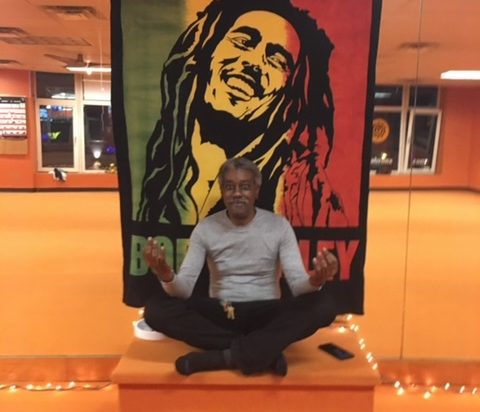Filmmaker Spike Lee Reflects on 9/11 and Other Issues
Behind the Scenes in a Newsroom on 9/11: How The Philadelphia Inquirer Newsroom Produced the Extra
09/10/2021
Remembering the Day that Changed the World Through the Eyes of a Former Police Officer
09/10/2021By Ron Wynn
With the 20th anniversary of 9/11, the worst terrorist attack ever on American soil looming, a lot of folks are offering analysis and reflection. But no one is doing it quite like the visionary filmmaker Spike Lee. His new four-part, originally eight but now seven and a half hour documentary series “NYC Epicenters 9/11-2021 1/2” that airs Sunday nights on HBO except for the finale on Sept. 11, is part historic examination and part political advocacy. Just like its creative force, the production is relentless in its inquiries, unapologetic in its tone, and both a celebration and searing polemic that raises troubling questions and spotlights alternately inspirational and disturbing figures among its 200 interviewees.
Lee serves as the off (and sometimes on) camera interviewer, and he’s not some disembodied, non-involved presence. He injects his opinions into these segments, and three things are crystal clear: One is his love for New York, which he has always said is “the greatest city in the world,” with particular shoutouts to Brooklyn. A second is his fierce support of and pride in Black culture and history, and the third is open contempt for much of what is now considered mainstream conservative political thought.
The first two parts (thus far the only ones I’ve had the opportunity to view) don’t even expressly deal with 9/11. The first episode looks primarily at the pandemic. Lee talks with medical people and ordinary folks whose lives were turned upside down by COVID-19. The segment repeatedly shows the folly and ineptness of then President Donald Trump (whom he constantly mocks as Agent Orange), from his initial claims it was a hoax to his attempts at downplaying its impact and even his suggestion of nonsensical remedies that were supposedly solutions or cures.
The second spotlights the 2020 national and global protests against police misconduct, while encompassing the impact of the Black Lives Matter Movement and equally fervent surge of White nationalist extremism, something he connects directly to the emergence of the “birther” movement and the Make America Great Again (MAGA) rhetoric emanating from the Trump campaign.
The final two portions reportedly focus solely on 9/11. These combine news footage and eyewitness accounts, while doing something many other examinations of this tragedy won’t do: include views and perspectives from Black New Yorkers whose memories about that day often get overlooked or even ignored. For instance Lee has gotten interviews with some United Airlines attendants whose accounts are certain to be gripping and unforgettable.
The Sept. 11 finale will spotlight the aftermath of the event from multiple perspectives. It will showcase both the surge in patriotic celebrations that followed and the shameful targeting of Muslims and Middle Easterners in harsh rhetoric and criminal actions, something that has lessened but not completely ended in the years afterwards. One thing Lee’s done in post-production that has gotten plenty of pre-episode publicity was his decision to excise from this last chapter interviews he’d previously done that aired conspiracy theories voiced by representatives of the group Architects and Engineers for 9/11 Truth. The last chapter is now thirty minutes shorter at an hour and half.
Lee re-edited this segment following controversy about the inclusion of contentions that included the claim Israel was directly involved in the attacks. However Lee does reportedly still include a disputed theory regarding Flight 93, the one that crashed in Pennsylvania after passengers took the plane back from its hijackers. This theory claims the plane was shot down rather than accidentally crashing.
As with Spike Lee’s other seminal documentaries, “NYC Epicenters 9/11-2021 1/2” is compelling, provocative and essential viewing. It may disturb those who don’t share his political views, but it certainly is informative, comprehensive and memorable.
Related posts
Blocks Away: A Memorial to 9/11My Artist statement:As a Black visual journalist it was rare to see others that looked like me covering the story of my lifetime on 9/11. I was in NYC on vacation from my job at The Detroit News, scheduled to fly home that morning, when I woke up to the second plane hitting the tower at full speed. I knew I needed to tell the story so I ran toward the danger. It was a natural reaction. I wanted to document the experience through the lens of a Black woman and native New Yorker. I spent days covering the tragedy from blocks away, taking time to capture images using my knowledge of the arts. I wanted to honor the people and the city of New York by spending days making pictures that documented what was going on. Through the lens of my camera, I was able to create a visual memorial.












